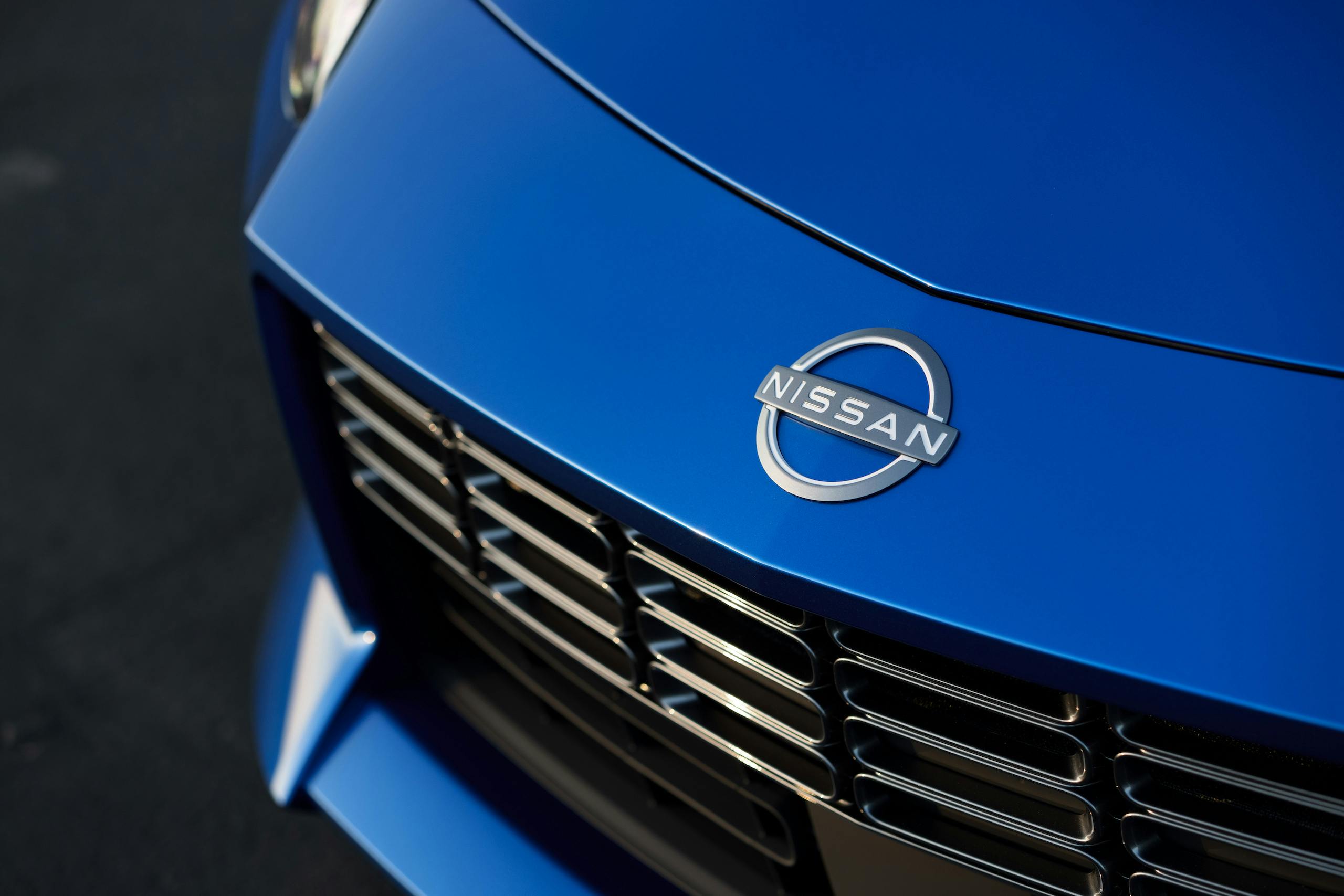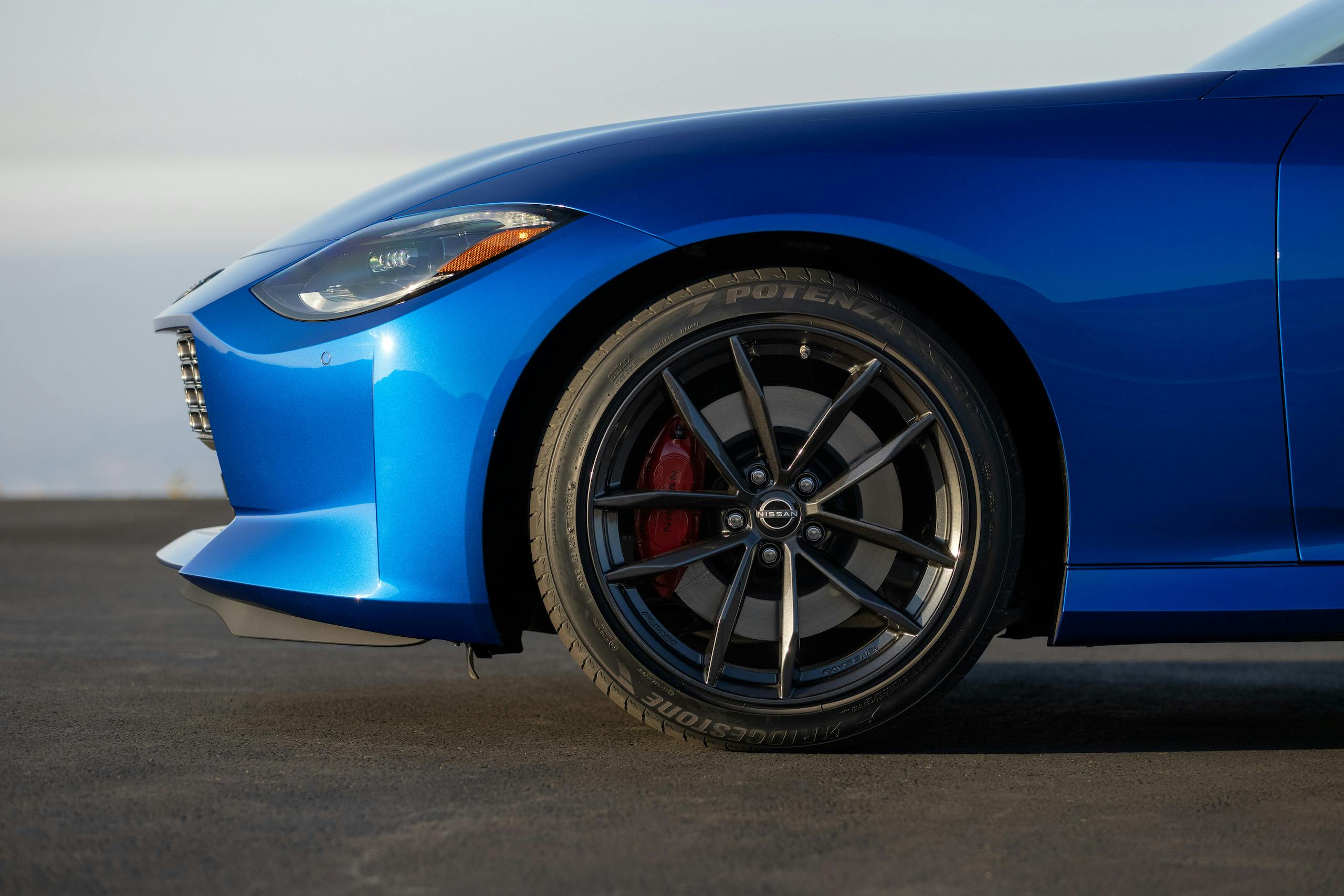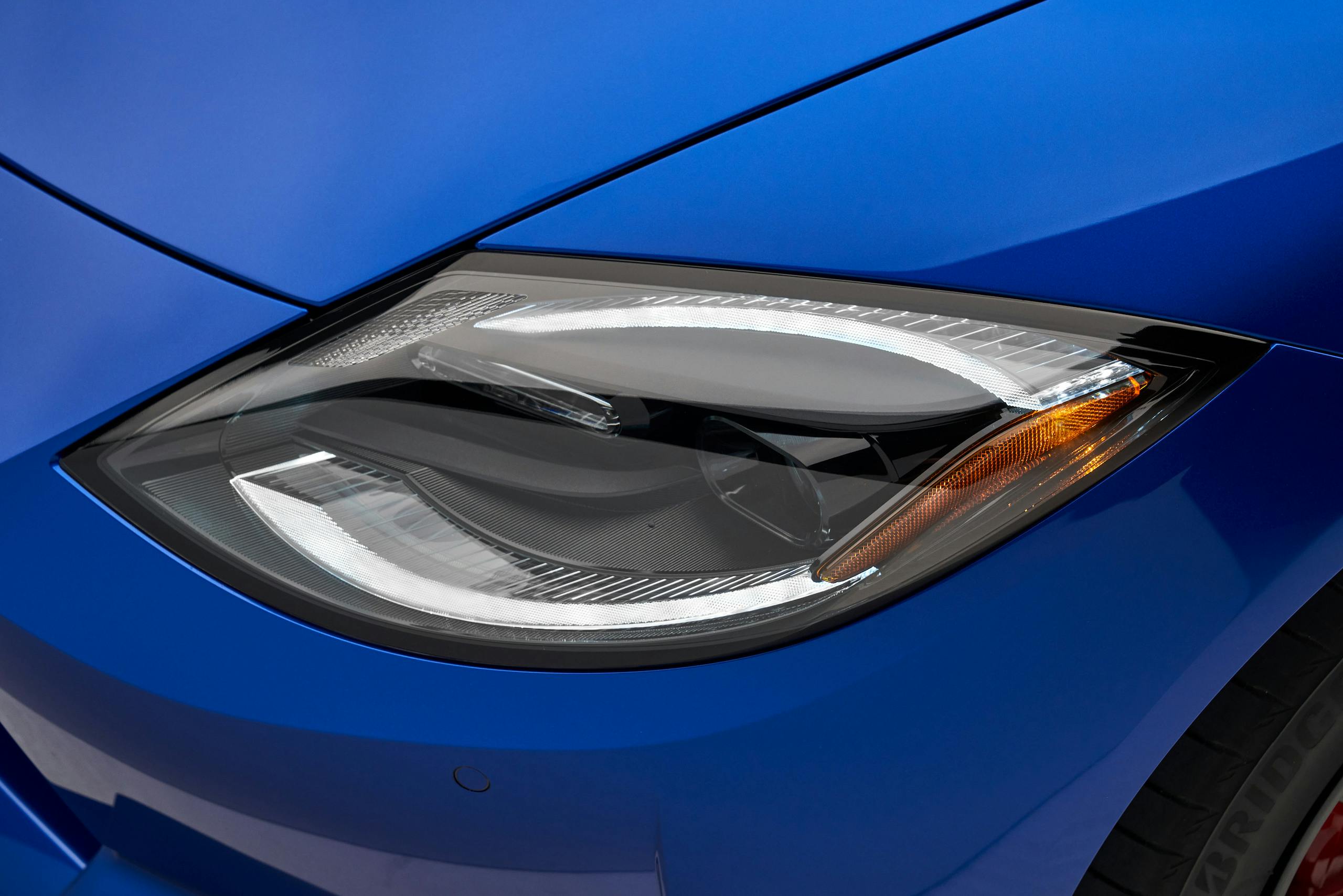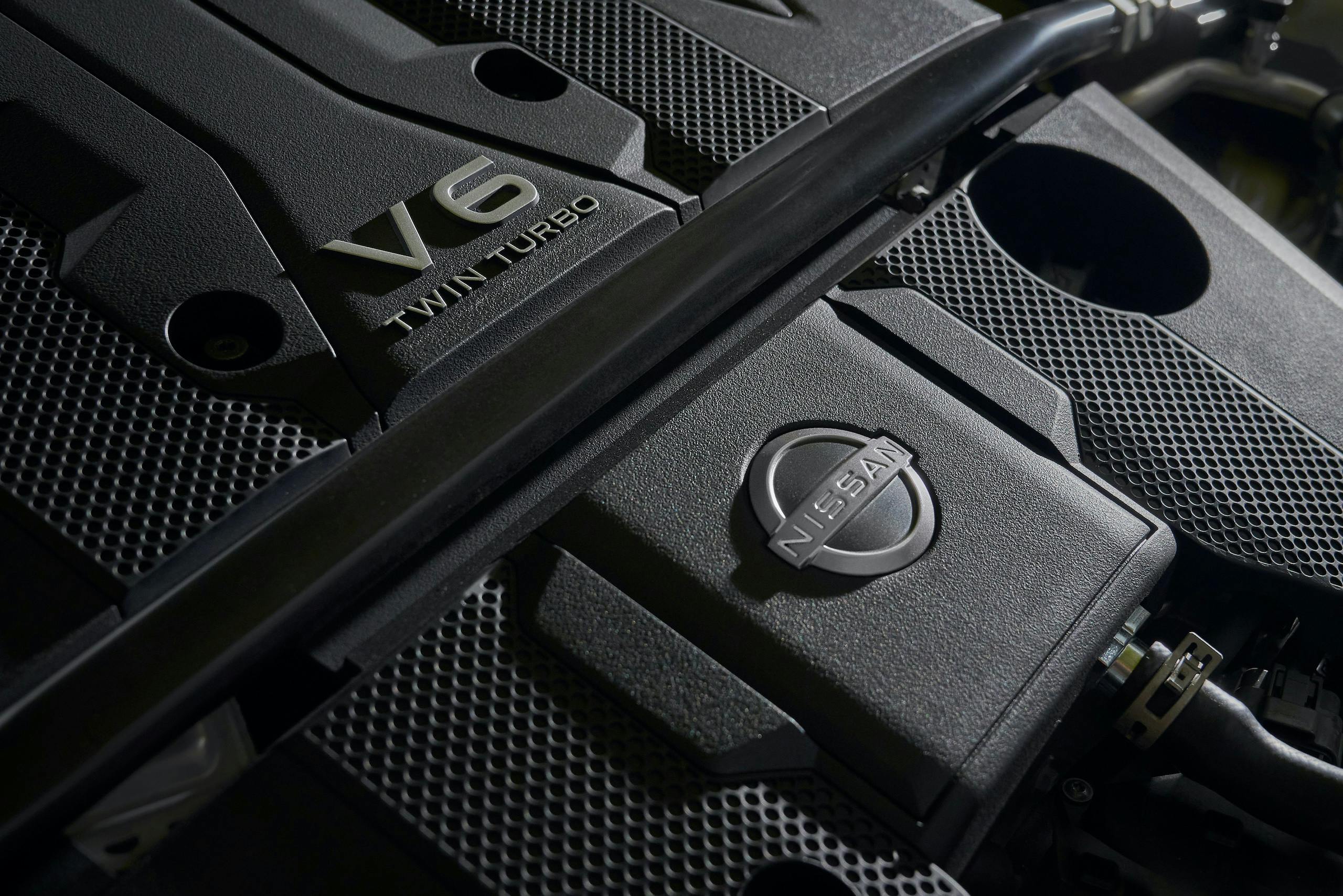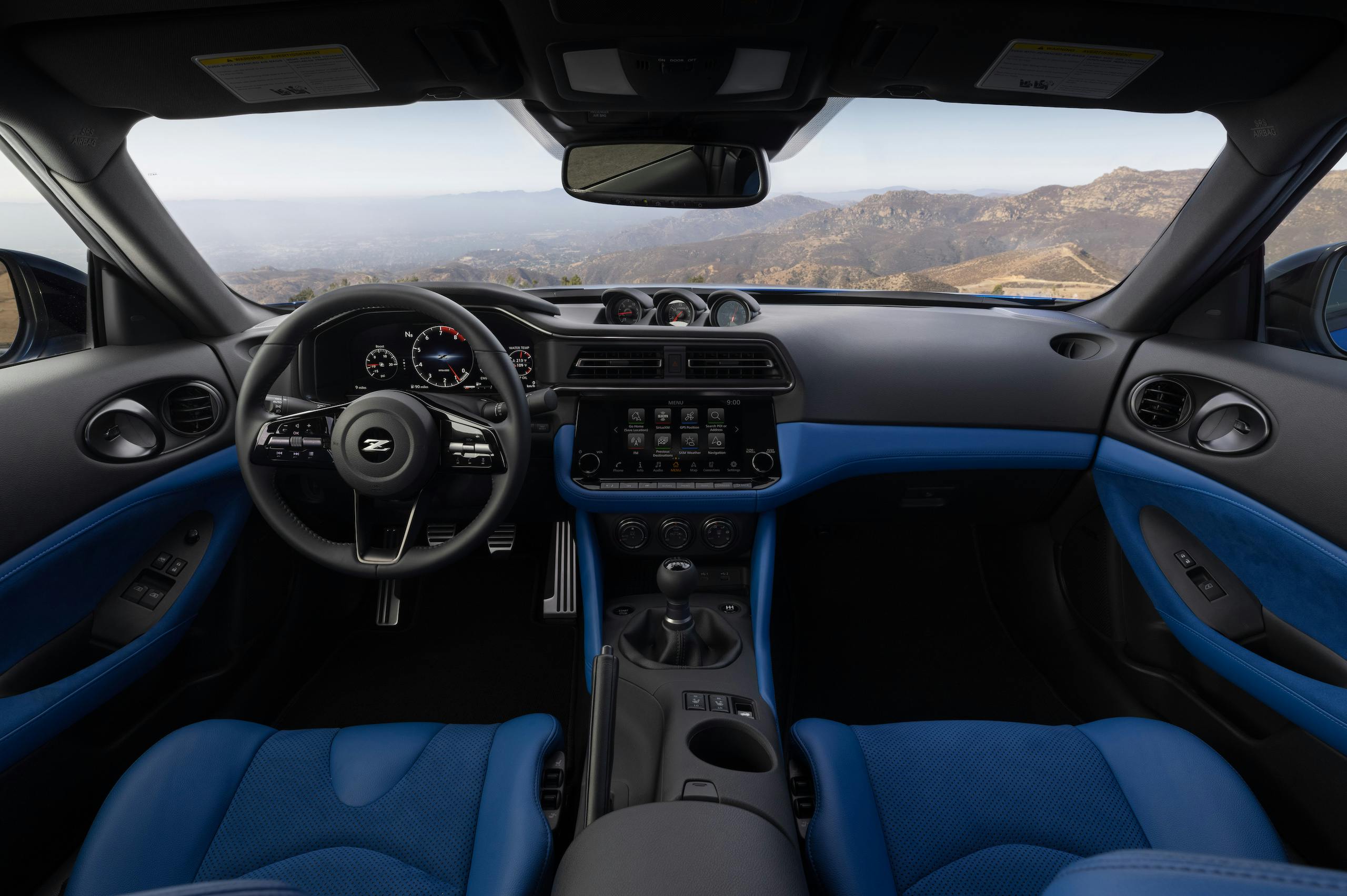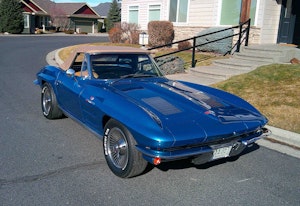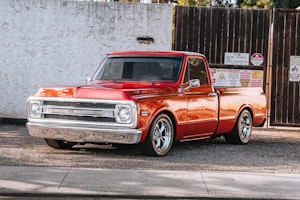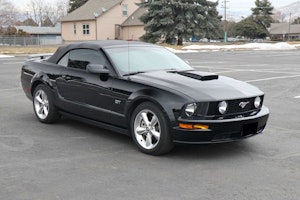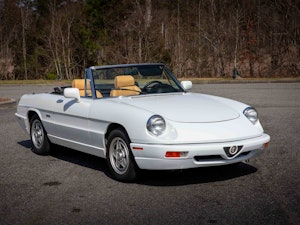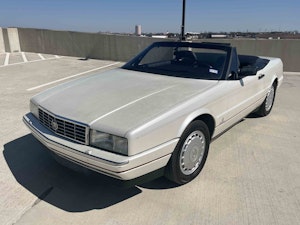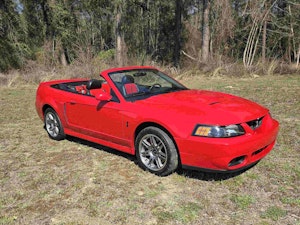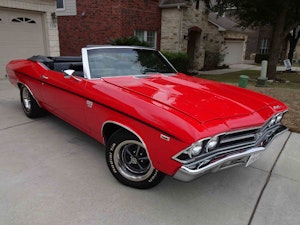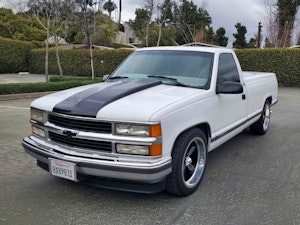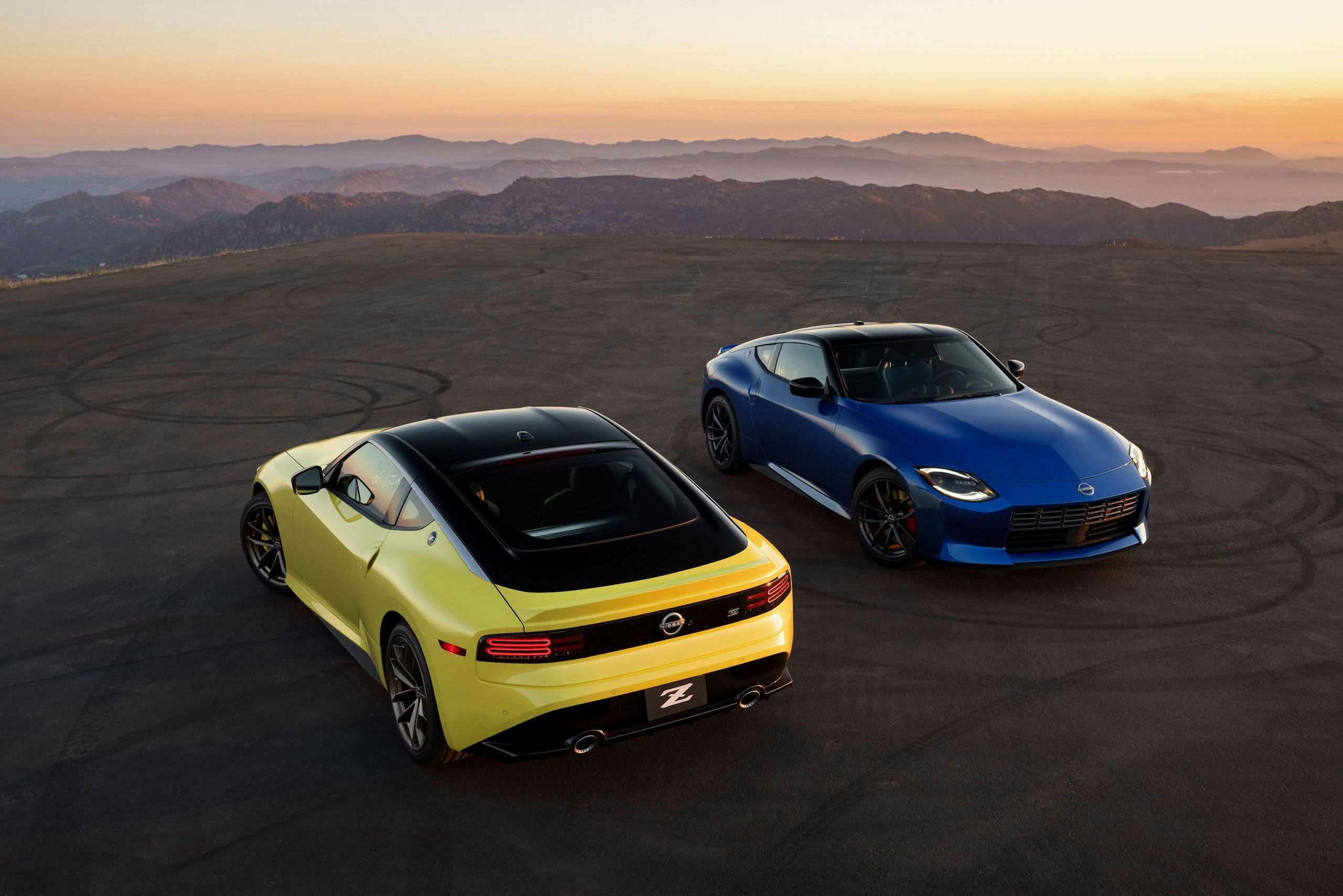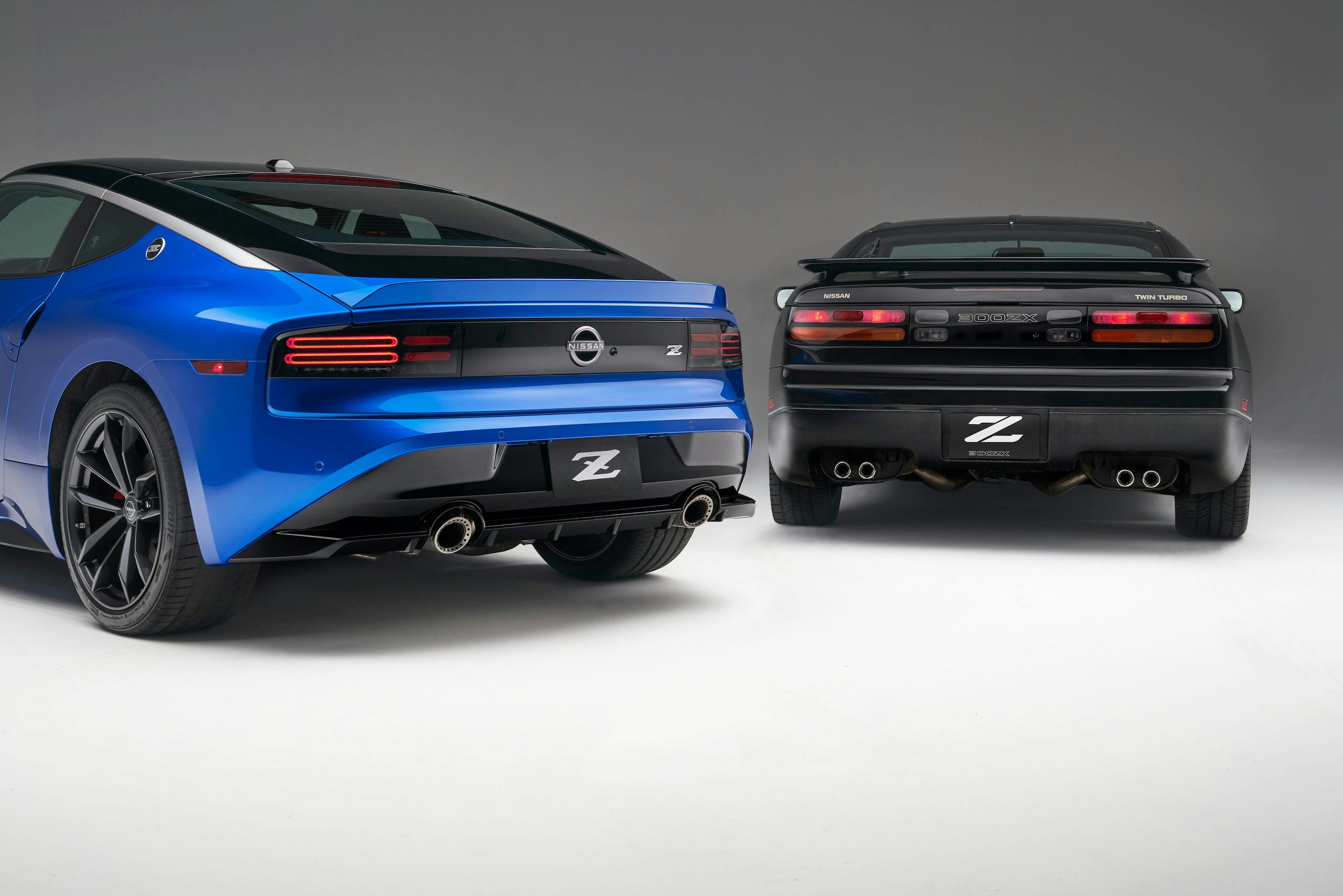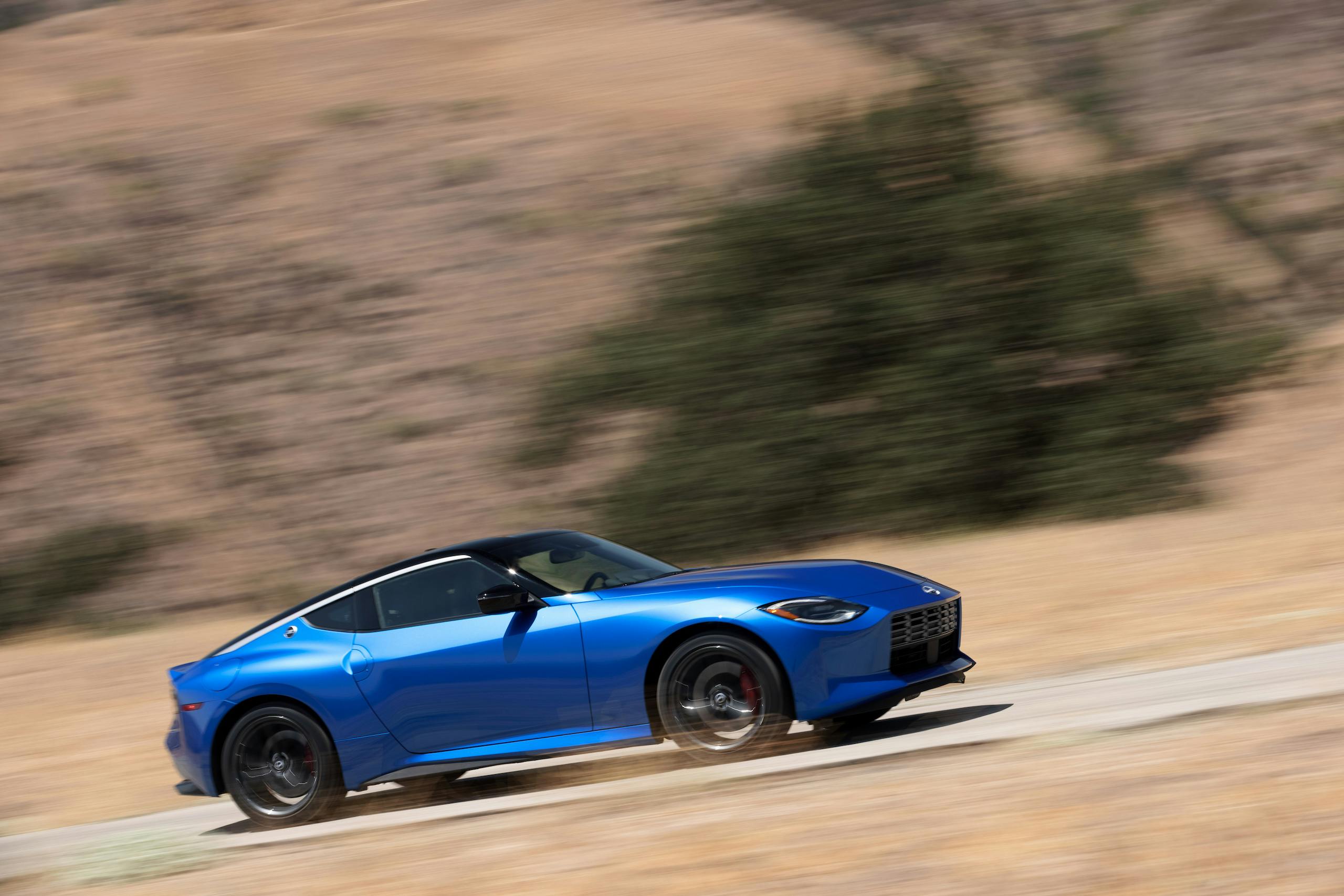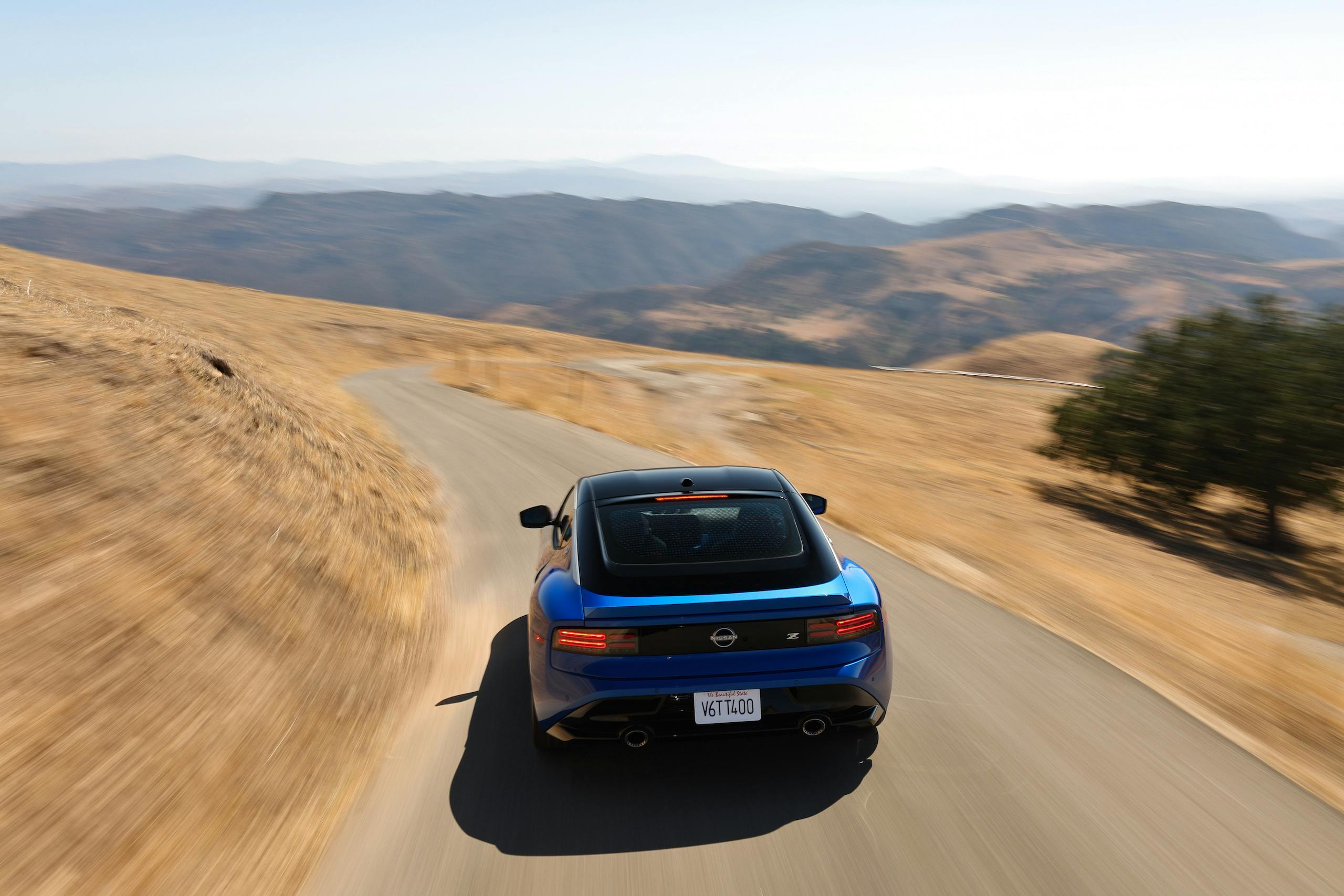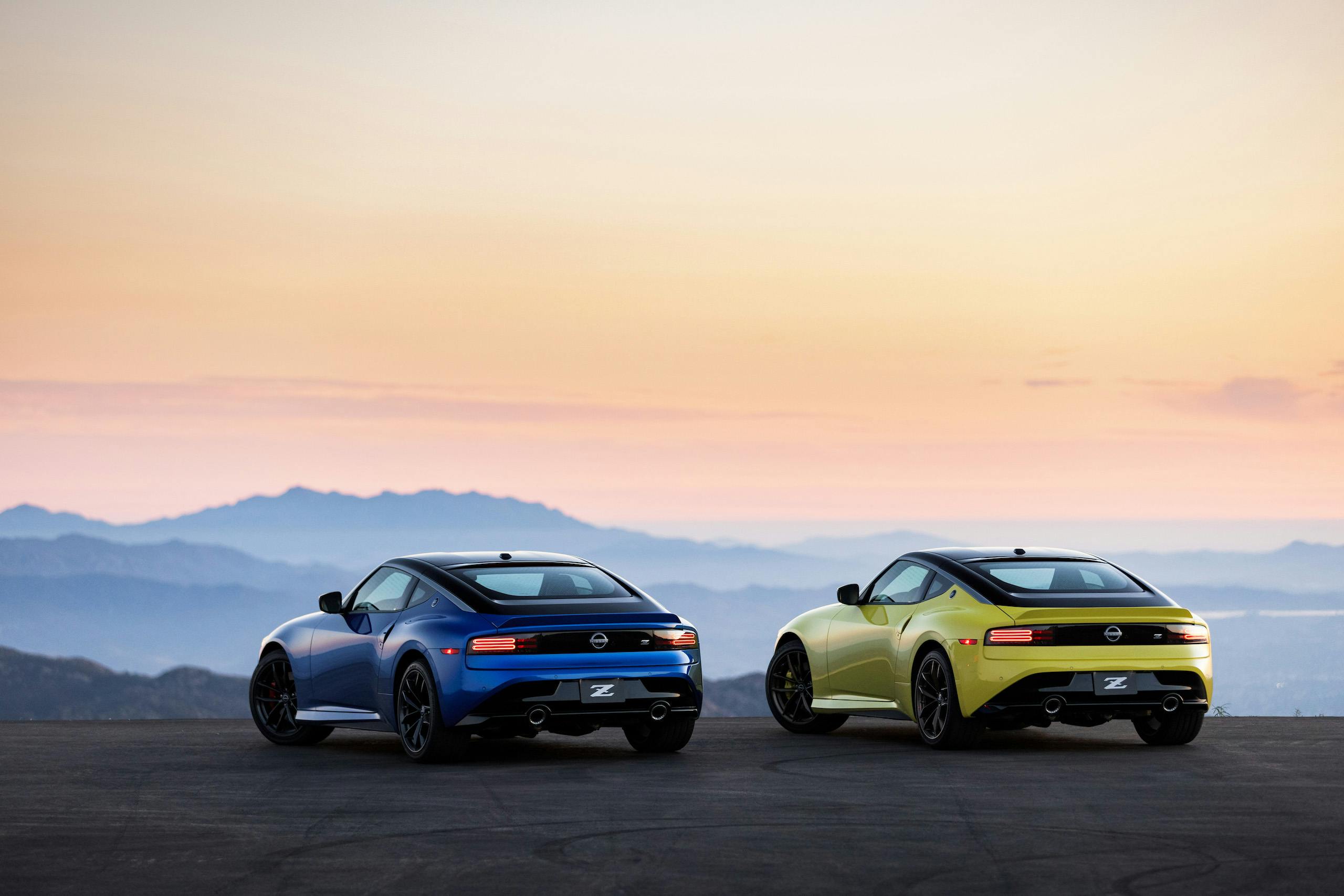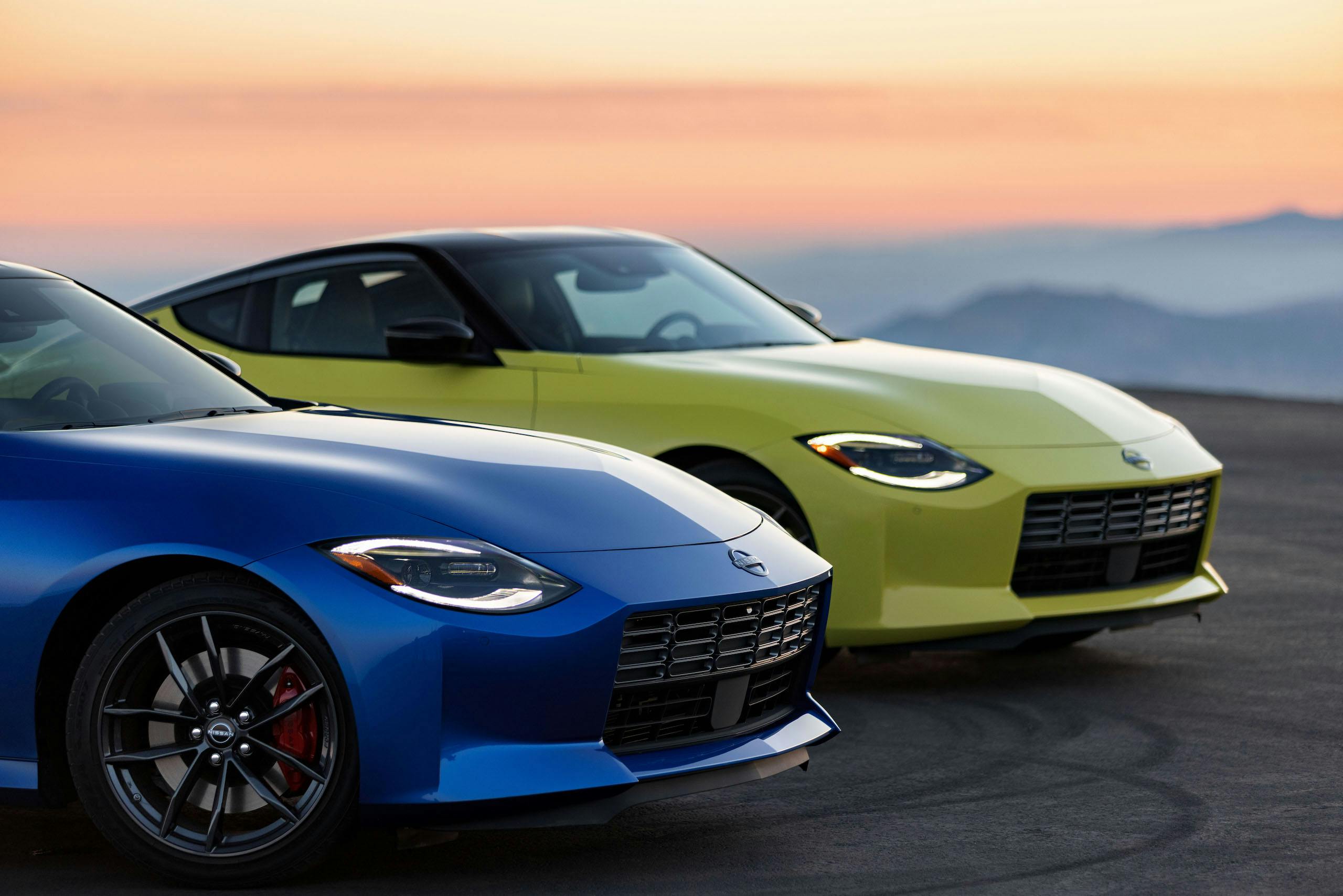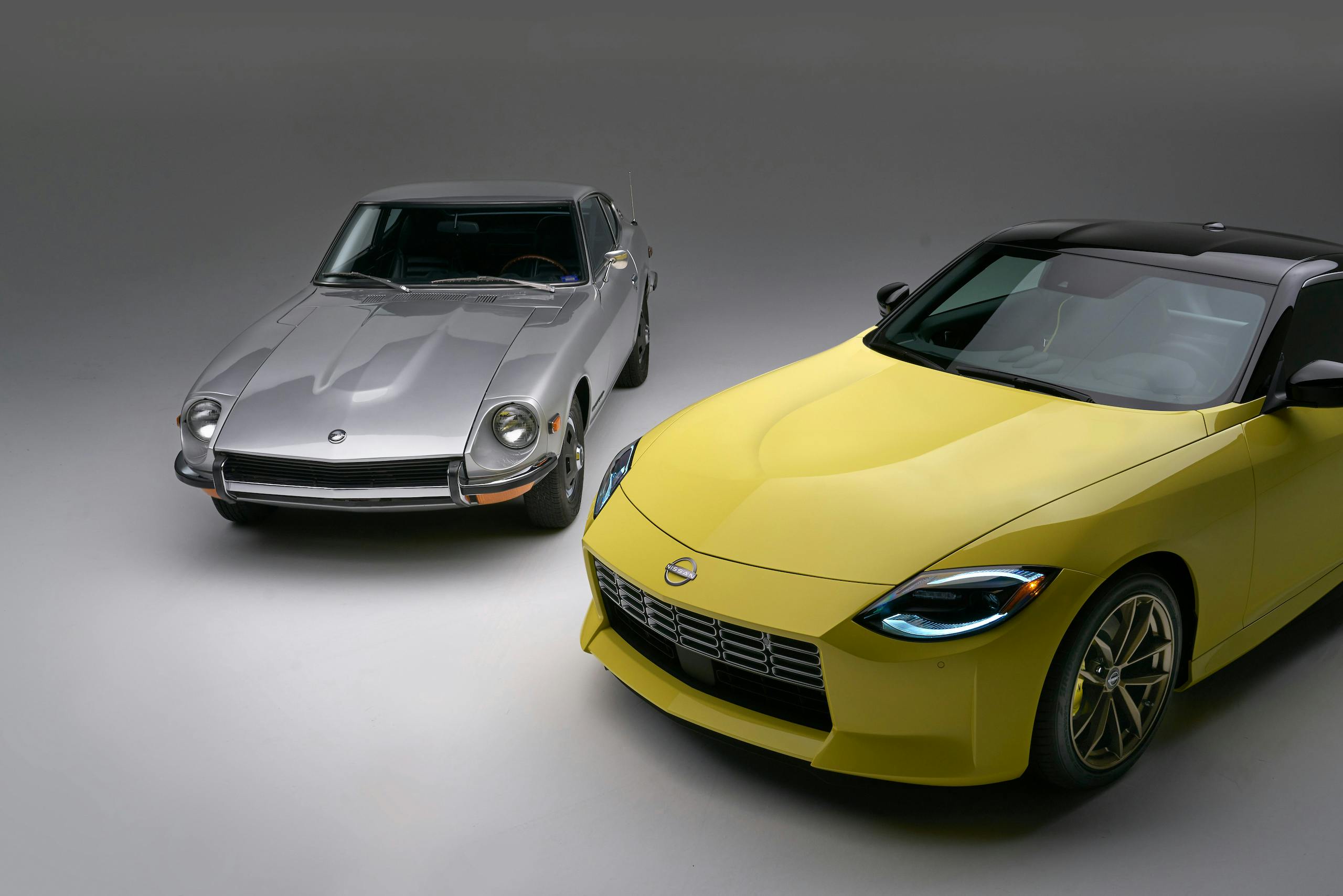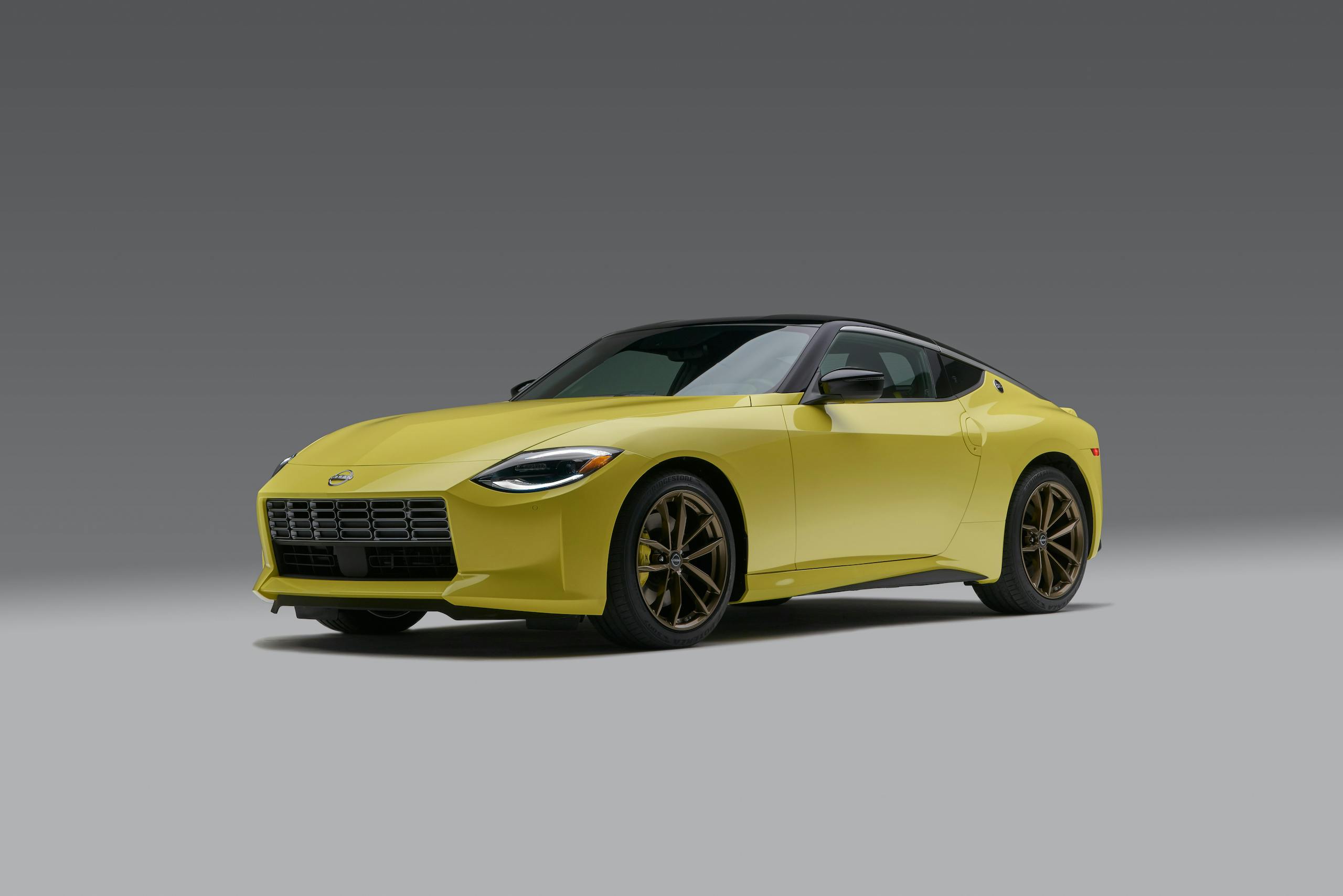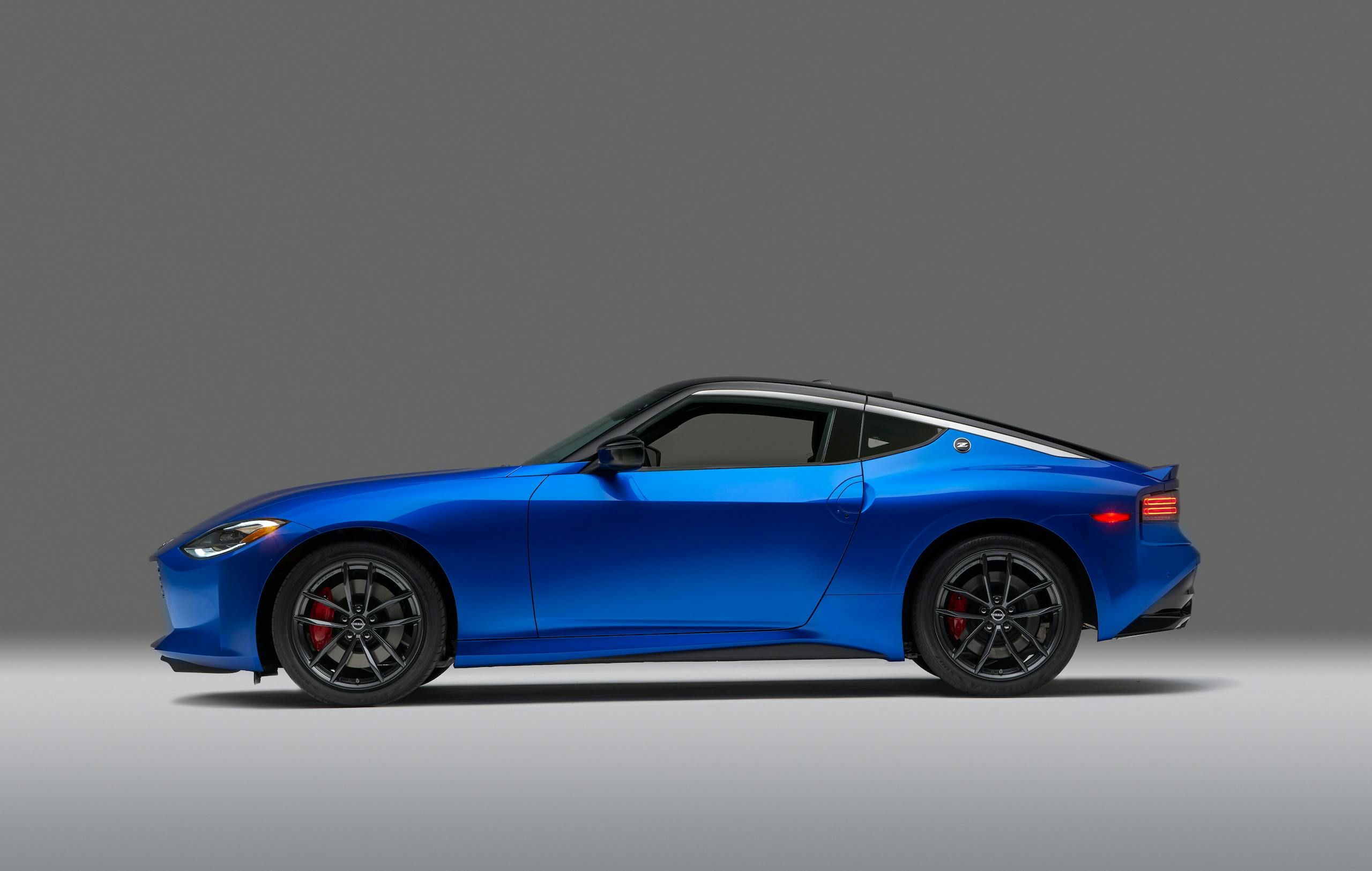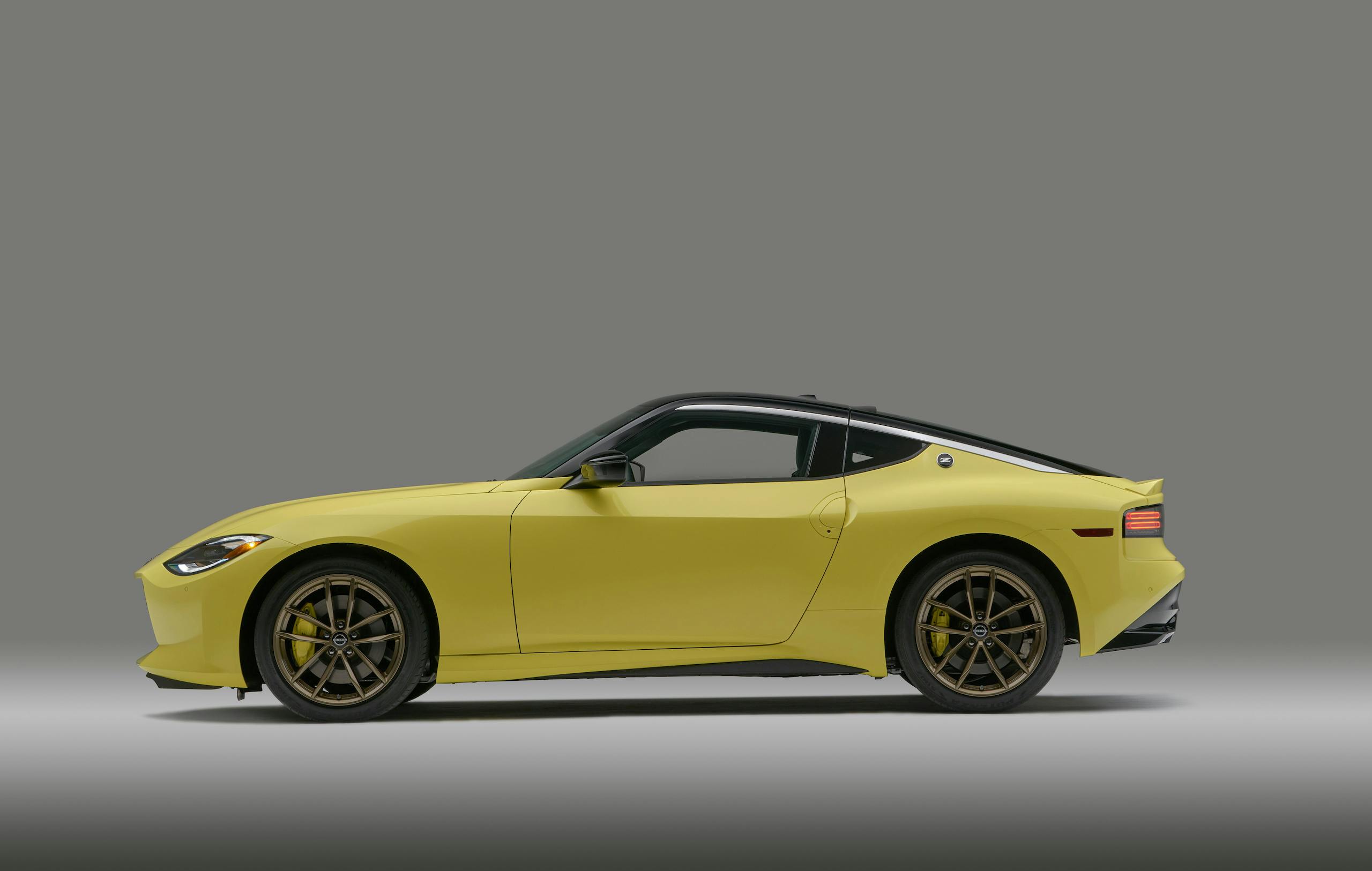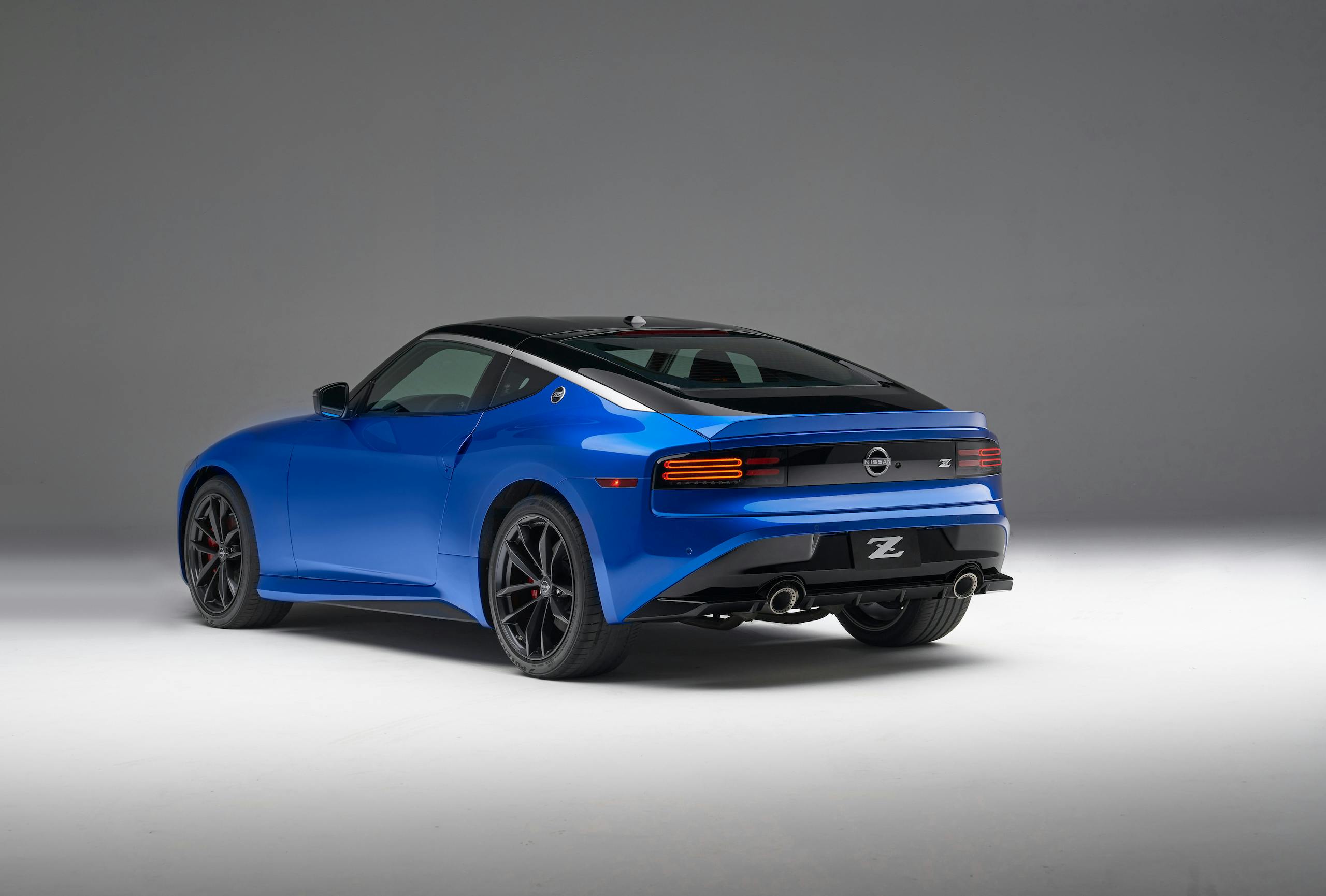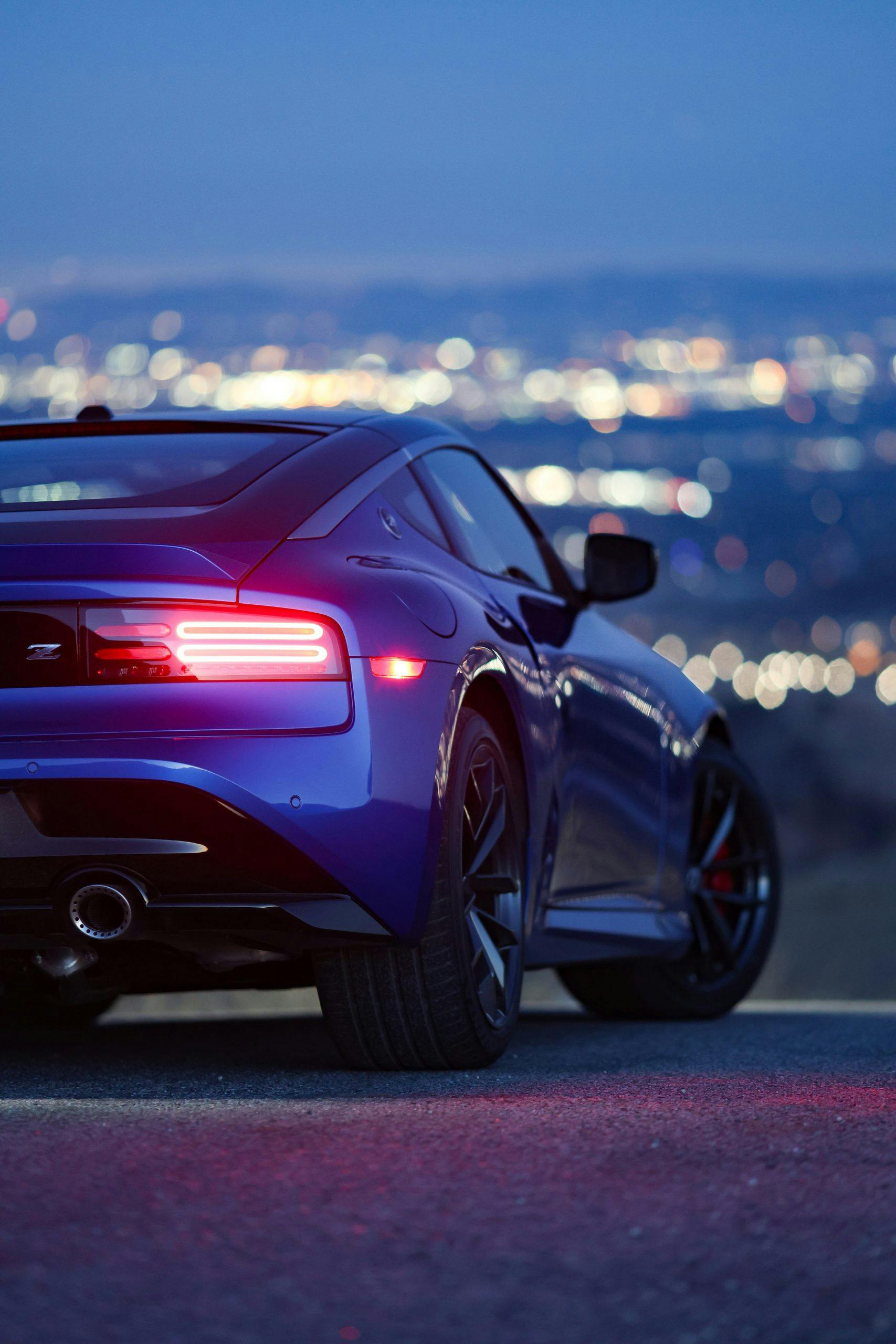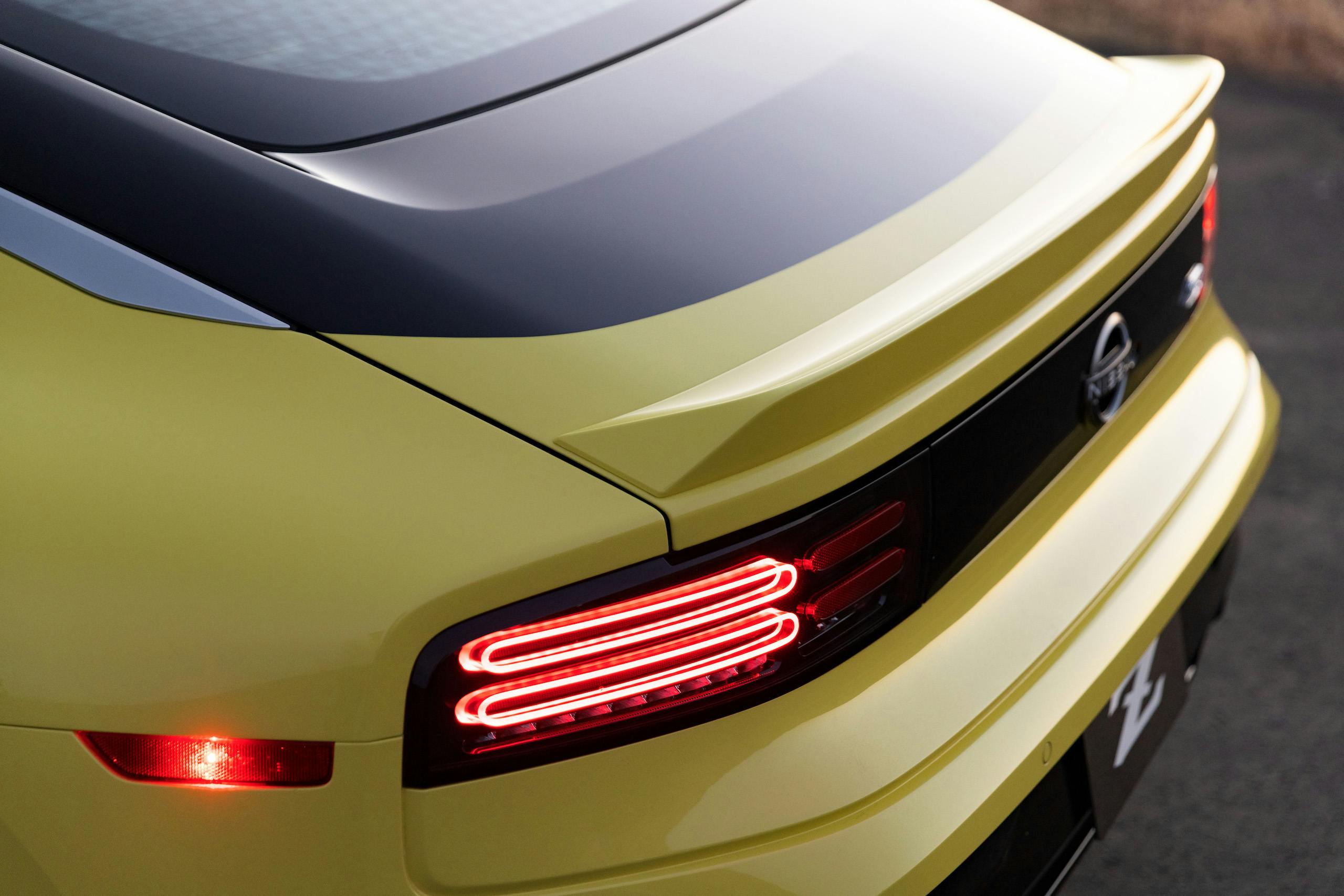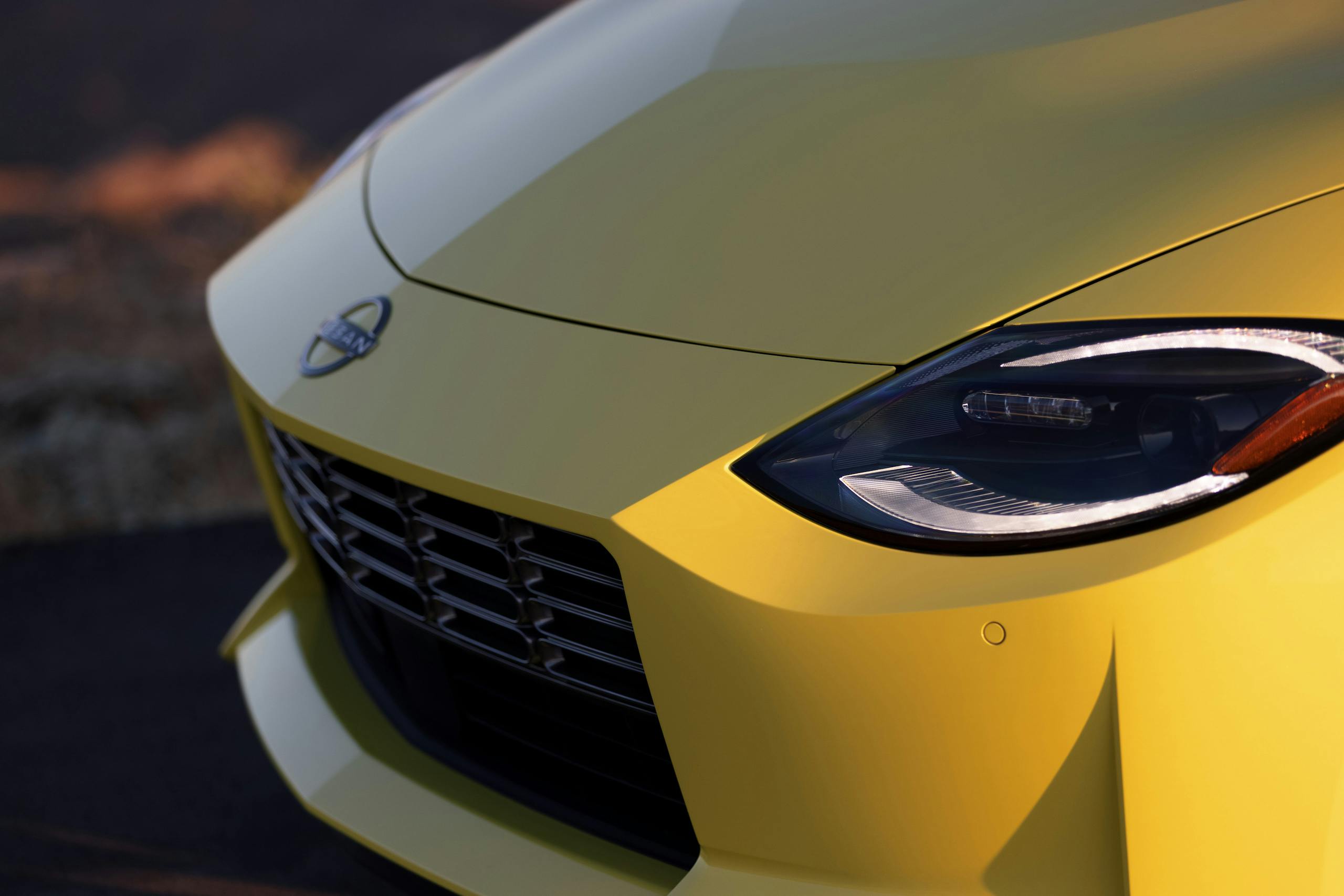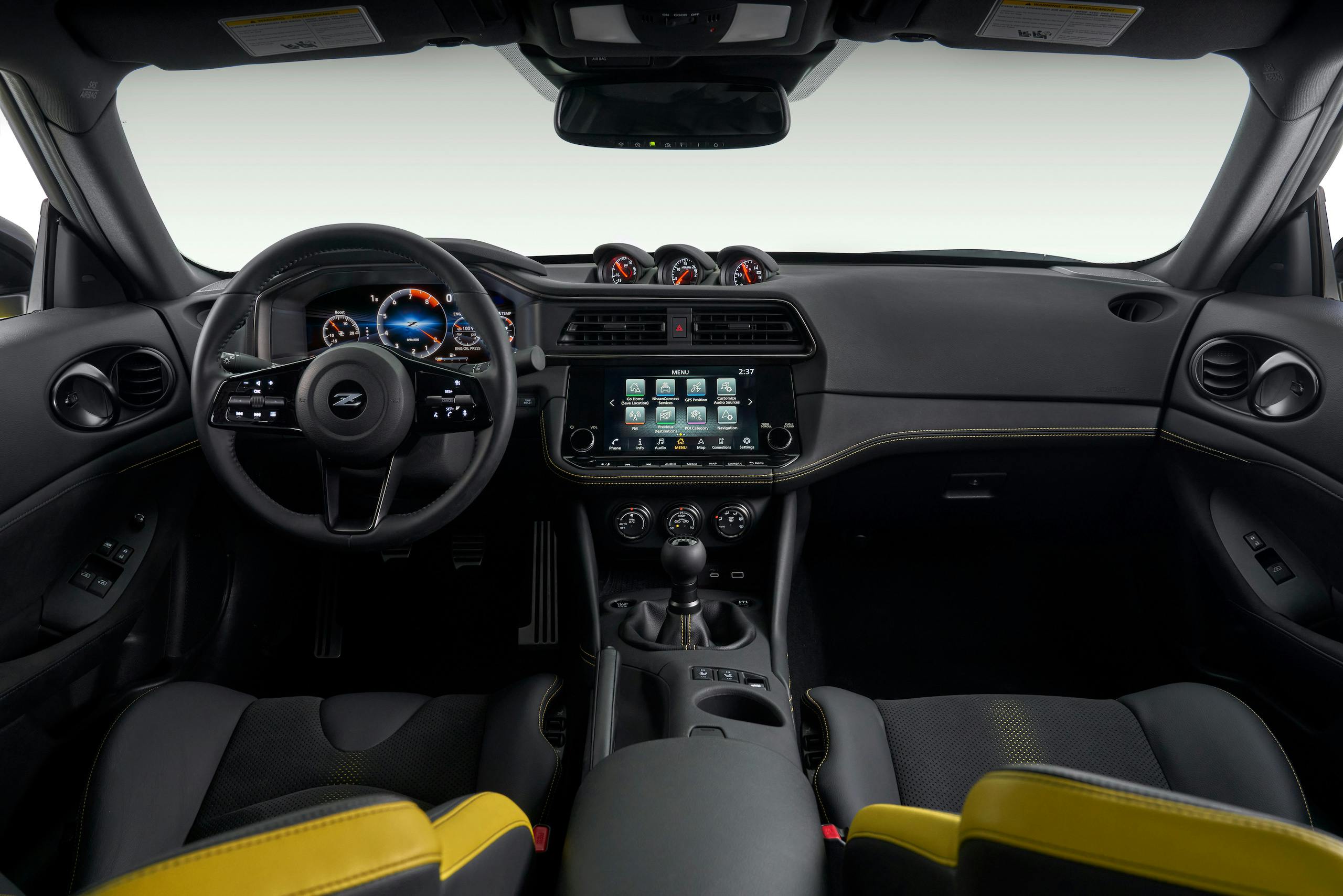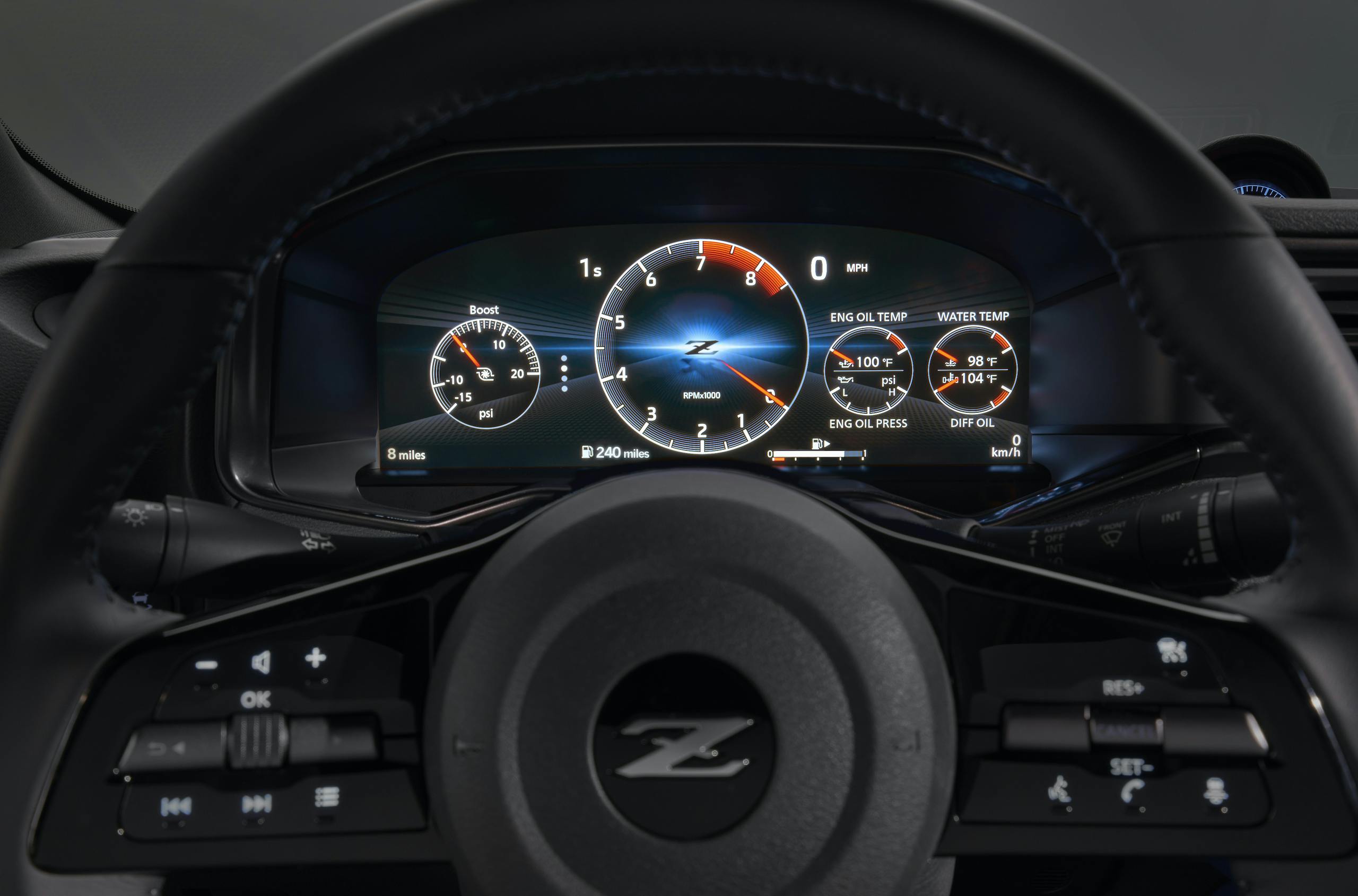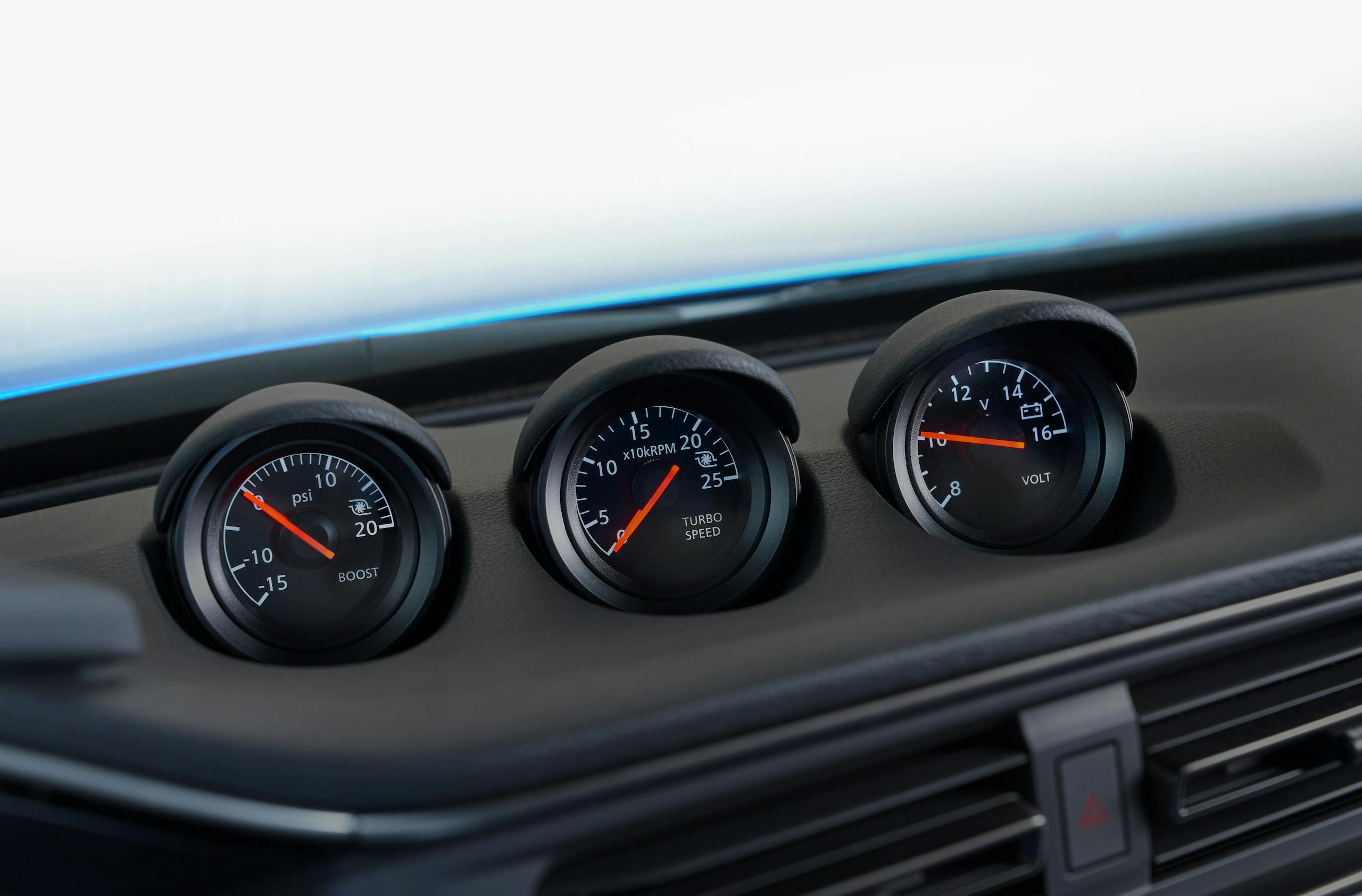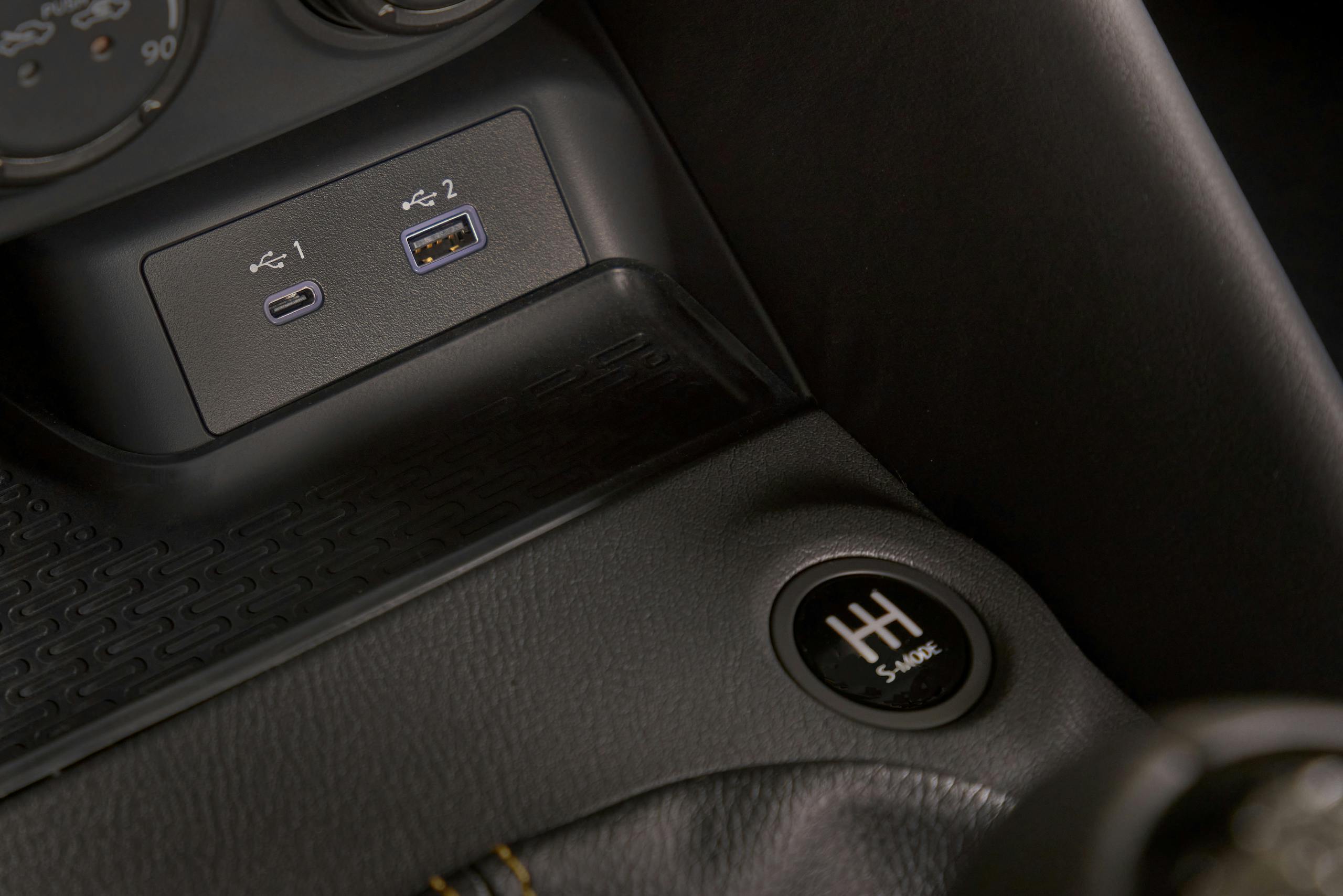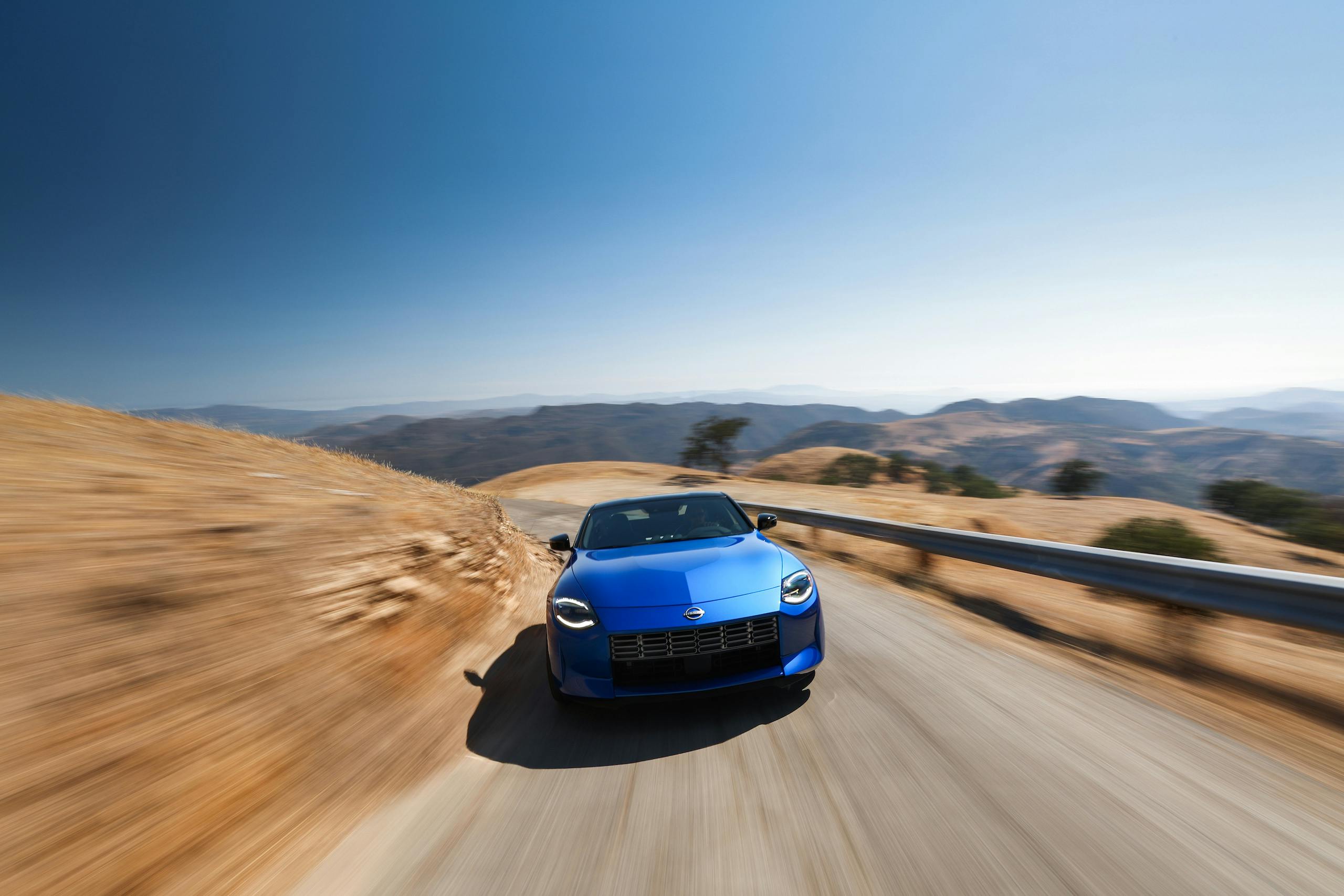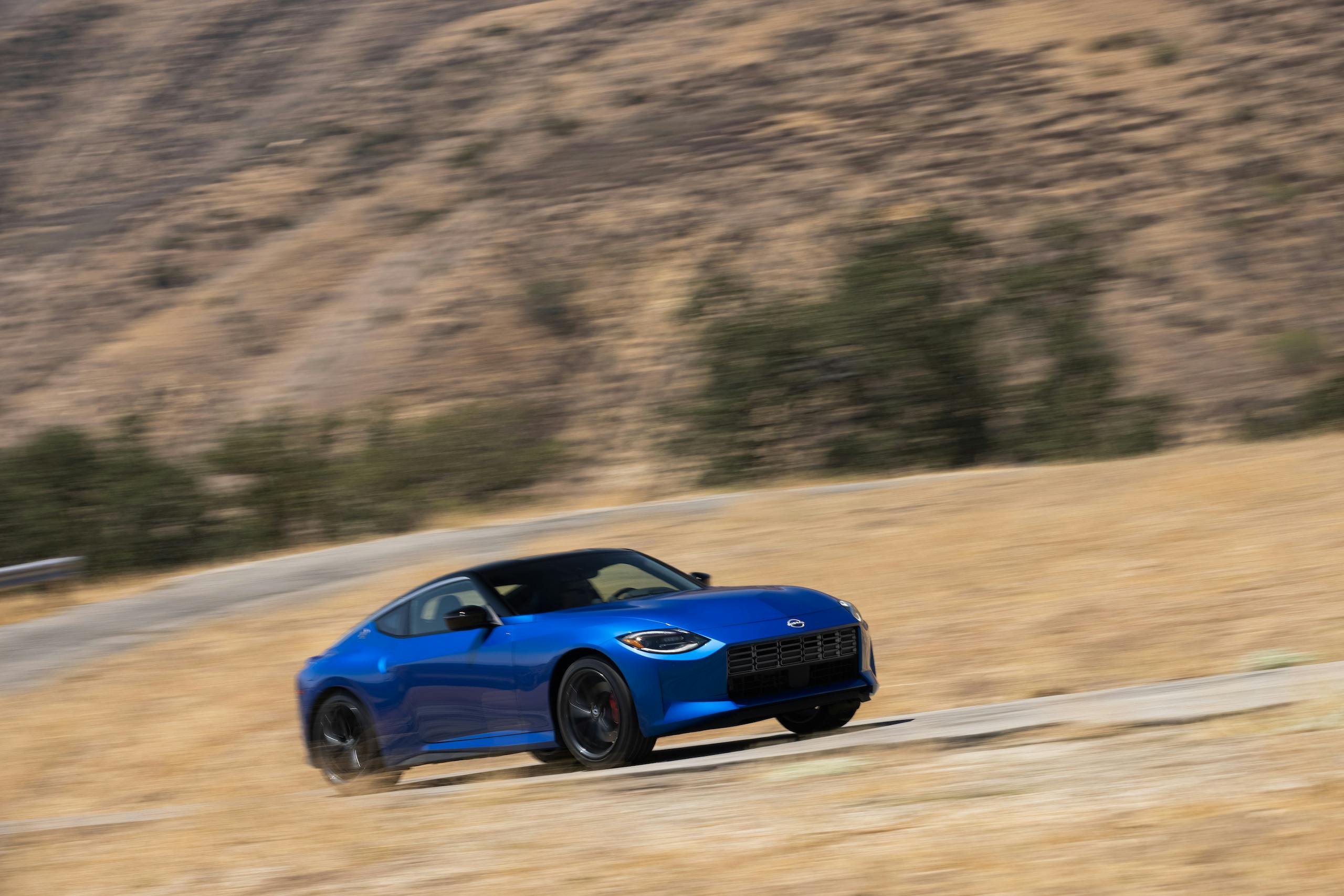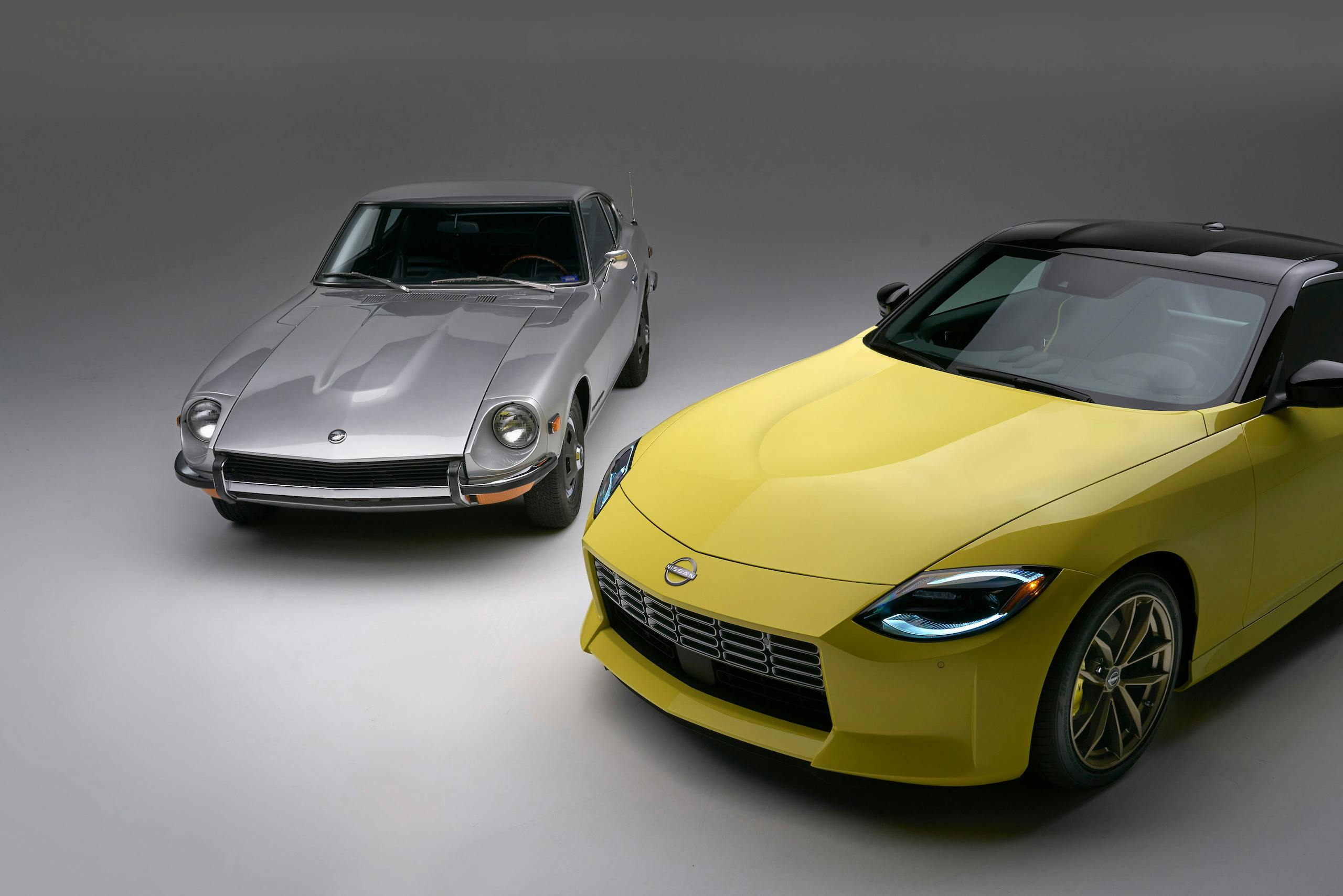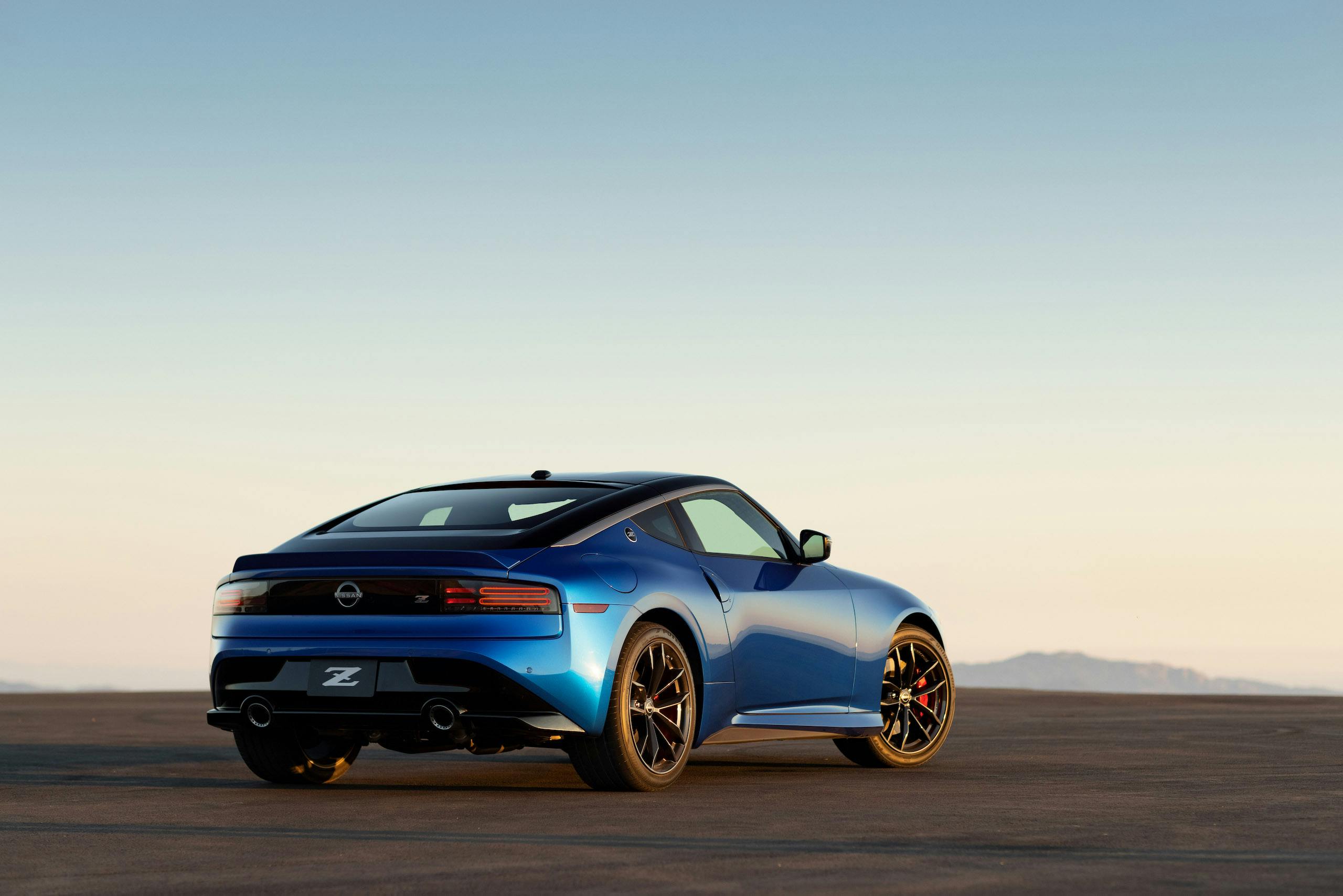Media | Articles
The Nissan Z is here, packing 400 hp, rear-wheel drive, and a six-speed stick
In the age of sexless, chunky crossovers doing their best to seem athletic and lithe, an honest sports car like this is cause for celebration. After much teasing and prototyping, Nissan unveiled the seventh-generation of the legendary Z car in New York City, some 52 years after the Datsun 240Z bowed in the same metropolis. The new car features a host of exciting upgrades while still maintaining a lot of the visual cues that made those early Z cars so special—and so desirable today. Let’s dive into the details and get a better sense of what expect when the car heads to market in the spring of 2022.

In a departure from previous Z cars, this one does not have numerals affixed to its name, instead opting for a simple “Z” moniker. We dig the classic proportions seen here—long, sweeping hood, with a cabin placed aft of center. The sloping roofline blends neatly with the rear of the car. (We also applaud Nissan for how much of the concept car made it to the actual production version, regardless of the fact that this is essentially a new skin over an old chassis.) The hood, doors, and hatch are all aluminum, in service of weight savings.
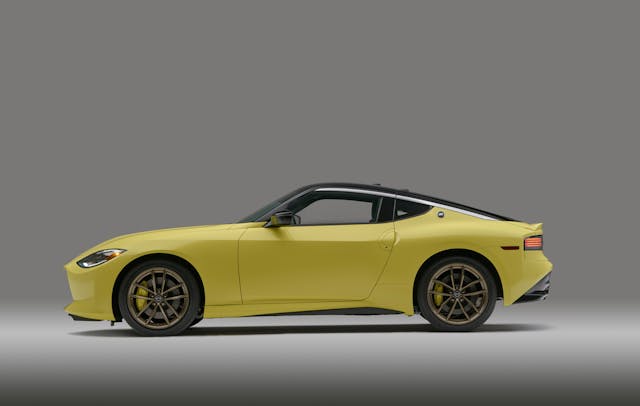
There are six two-tone exterior colors: Brilliant Silver, Boulder Gray, Seirian Blue, Ikazuchi Yellow, Passion Red TriCoat, and Everest White Pearl TriCoat, all of which come with a Super Black roof. If two-tone isn’t your thing, you can get the whole car in one of three monotones: Black Diamond Metallic, Gun Metallic, or Rosewood Metallic.
As expected, the new Z will come exclusively as a front-engine, rear-drive coupe—forever and ever, amen. The VR30DDTT 3.0-liter twin-turbo V-6 produces 400 horsepower at 6400 rpm, and 350 lb-ft of torque from 1600–5600 rpm. The ratio at which that torque typhoon reaches the rear wheels will be up to you to control via a six-speed manual transmission with an EXEDY high-performance clutch and automatic rev matching. If for some reason you’re uninterested in rowing your own, there’s a nine-speed automatic available with paddle shifters and launch control. Manual-equipped Zs will get a carbon-fiber driveshaft.
Opt for the Performance version (one of two trims, the other being a more subdued Sport) and you’ll get a front chin spoiler and a rear spoiler. Performance Zs get two other driveline goodies: a clutch-type limited-slip differential and a sport-tuned exhaust to let that VR30 sing.
Marketplace
Buy and sell classics with confidence
The good news continues in the suspension department. There’s a double wishbone setup in the front and a multilink arrangement in the rear, with hollow stabilizer bars front and rear to help mitigate body roll. The Performance trims get a sport-tuned suspension. On the Sport Z, you’ll get 12.6-inch front and 12.1-inch rear brakes with two-piston front and single-piston rear calipers. Opt for the Performance trim and you’ll score 14-inch fronts and 13.8-inch rears, squeezed by four-piston and two-piston calipers, respectively.
Standard Zs get a square setup in the wheel and tire department, with 18×9-inch aluminum alloy wheels wrapped in 245/45 Yokohama sport tires at each corner. Performance Zs should please the tuner crowd with RAYS super lightweight forged aluminum alloy wheels, measuring 19×9.5 inches in the front and 19×10 inches in the rear, wrapped in Bridgestone Potenza high-performance tires measuring 255/40 in front and 275/35 in the rear.

Inside, Sport Zs are fitted with cloth seats, while the Performance buyers can enjoy suede and leather seats with a unique seat cushion and side bolster design. All trims get the sport bucket seats, but if you live in a colder climate, we recommend opting for the Performance trim to get seat heaters. Apple CarPlay and Android Audio are standard across the lineup, as is Bluetooth and Sirius XM radio. There’s a six-speaker sound system in the Sport, but the Performance model will bump it up to an eight-speaker Bose system with active noise cancellation, along with a 9-inch touchscreen with navigation in place of the standard 8-inch unit. There’s a digital screen behind the steering wheel that displays the speedometer, tachometer, and coolant temp gauge, as well as three sweet readouts mounted over the central infotainment screen for turbo boost, turbine speed, and voltage.

The most ardent of fans can lineup early for their chance at one of just 240 Proto Spec versions, which builds off the Performance trim and adds yellow brake calipers, bronze-colored aluminum-allow wheels, an exclusive shift knob for the manual-equipped cars, exclusive seats, special door trim and interior stitching, as well as Proto Spec interior badging.
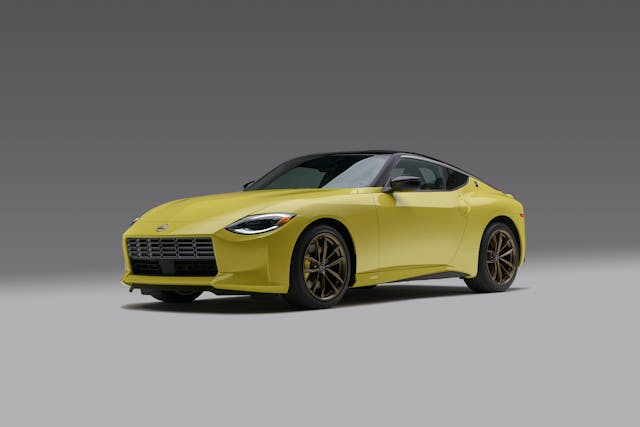
There’s no word on pricing details yet, but given that the Nissan Z goes on sale in Spring of 2022 as a 2023 model year, we won’t have long to wait for specifics. A base price around $40,000 would be reasonable to expect.
Performance coupes are not exactly falling from trees, which makes this car’s existence all the more wonderful. That it comes standard with a manual is even better. If the Camaro doesn’t come back for a next generation, as rumored, a V-8 vs. turbo V-6 rivalry between the Mustang GT and the Nissan Z is all but assured. Don’t write the epitaph on the combustion sports car grave just yet.

